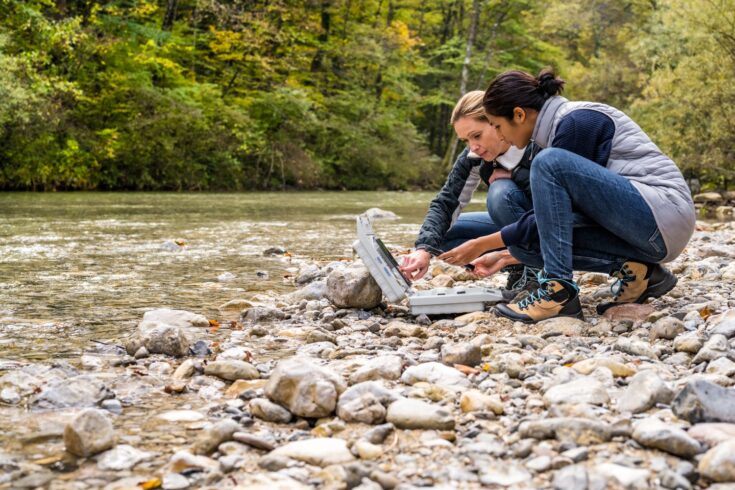The Natural Environment Research Council (NERC) funding will enable UK researchers to continue to access the UK’s pool of field and analytical equipment which underpins environmental science.
This recommissioning of scientific support and facilities will continue until March 2031.
NERC facilities
The facilities are led by:
- British Geological Survey
- National Centre for Earth Observation
- National Centre for Atmospheric Science
The facilities are:
Atmospheric Measurement and Observation Facility (AMOF)
Managed by the National Centre for Atmospheric Science, AMOF is an internationally-leading UK research facility that enables advanced observations of the atmosphere.
The facility provides instrumentation, observatories, laboratories, data and training to enable research across a wide range of areas including air quality, greenhouse gases and meteorology.
Ion Microprobe Facility (IMF)
Located at The University of Edinburgh, IMF provides secondary ion mass spectrometry for chemical and isotopic analysis of very small volumes of material in minerals and other environmental samples.
National Environmental Isotope Facility (NEIF)
NEIF has nodes located at:
- British Geological Survey
- Scottish Universities Environmental Research Centre
- University of Oxford
- University of Bristol
NEIF covers a broad range of environmental science across the NERC remit, including environmental and life sciences, and geochronology and earth sciences.
The new funding will improve capability of the facility.
NERC Environmental Omics Facility (NEOF)
NEOF, hosted by the universities of Liverpool and Sheffield, provides equipment in genomics, bioinformatics, proteomics and metabolomics support for environmental science researchers.
Geophysical Equipment Facility (GEF)
This facility is located at:
- The University of Edinburgh
- Leicester University
- Durham University
- University of Southampton
GEF supports high-quality, peer reviewed projects across a broad spectrum of earth and environmental sciences by providing geophysical instrumentation for land-based and seabed research.
Field Spectroscopy Facility (FSF)
Located at The University of Edinburgh, FSF provides spectroscopy measurement instruments to analyse the properties of vegetation, soil, rocks and water bodies.
NERC Earth Observation Data Analysis and Artificial Intelligence Service (NEODAAS)
NEODAAS, based at the Plymouth Marine Laboratory, provides earth observation data processing and analysis, advice and training, and support for researchers utilising artificial intelligence with Earth observation data.
National capability funding
The funding has been awarded from NERC’s national capability portfolio.
Professor Peter Liss, Interim Executive Chair of NERC, said:
NERC is committed to fostering ambitious world-leading research in environmental sciences, including investing in the UK’s national capability in environmental science analytical facilities, plus support and research equipment for fieldwork.
This significant investment in NERC’s Scientific Support and Facilities portfolio will ensure that our facilities can continue to provide the expertise and support to continue to meet demand from the environmental science community over the next seven years.
Investing in UK facilities
Facilities will continue to be supporting users during the transition.
Researchers interested in using NERC scientific support and facilities should continue to contact to the relevant facility to discuss their research proposal.
Two other facilities currently in the NERC scientific support and facilities portfolio will also continue to be supported by NERC national capability funding:
- Culture Collection of Algae and Protozoa (CCAP)
- European Incoherent Scatter Radar (EISCAT)
These facilities are being recommissioned through separate processes, with further information to follow.
Further information
Find out more about NERC facilities available to researchers.
Top image: Credit: vm, E+ via Getty Images

